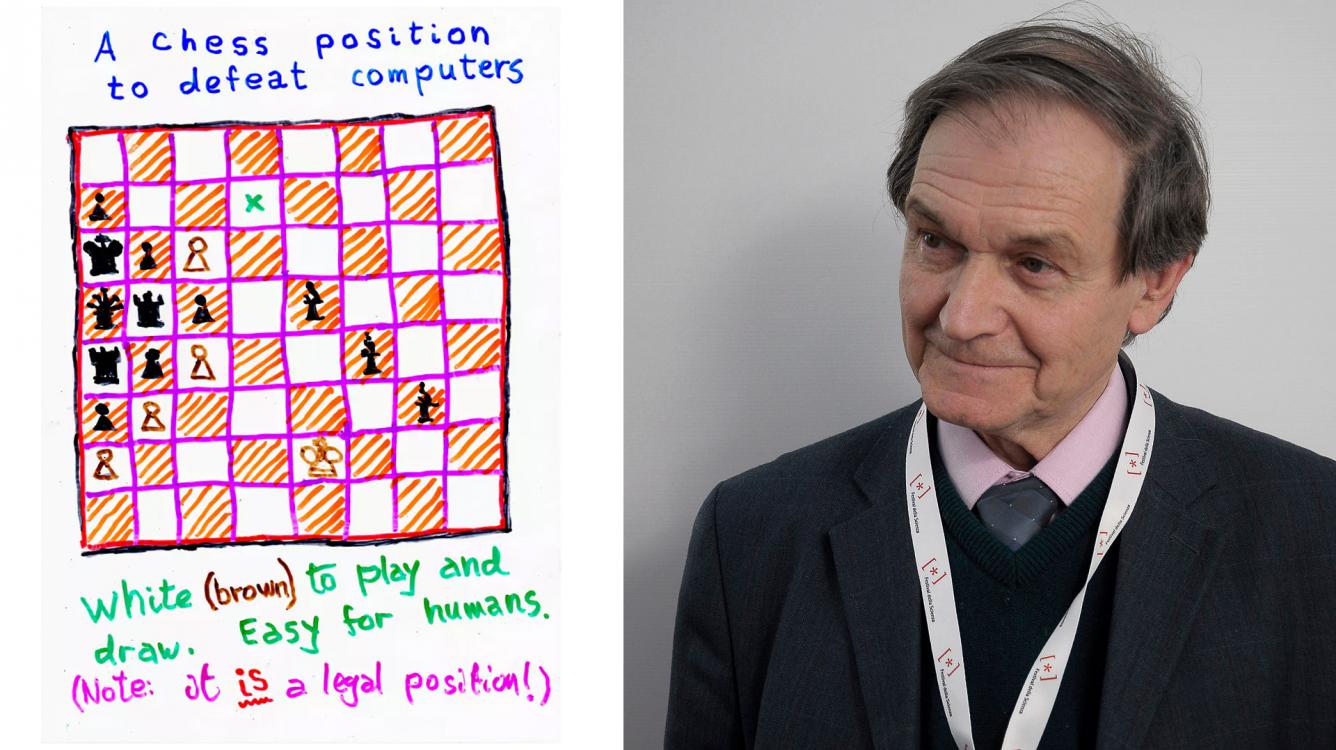
Will This Position Help Understand Human Consciousness?
It's a position computers struggle with, but chess players might solve instantly. Sir Roger Penrose from the Mathematical Institute of Oxford has started a public challenge that involves chess, in order to learn more about the uniqueness of the human brain.
Drawing courtesy Penrose Institute | Photo: Sir Roger Penrose, Wikipedia.
Computers can calculate better than humans, but humans have a "consciousness", whatever it may be—that has been the subject of debate for centuries.
Recently the Penrose Institute has been founded, which will investigate exactly this problem from the perspective of physics: are there fundamental differences between artificial and human intelligence?
The institute is named after Sir Roger Penrose, a well-known mathematical physicist who shared the Wolf Prize in physics with Professor Stephen Hawking in 1988 for his work on black hole singularities.
But the surname might ring a bell for different reasons: He also happens to be the brother of GM Jonathan Penrose.
Along with the launch of the Penrose Institute, the following chess position has been shared. It is a legal position, and designed to be unsolvable for computers, but relatively easy for humans.
Chess engines consider this to be a win for Black. For example, Stockfish 8 still evaluates it at -28 after five minutes of thinking.
According to the challenge, it is possible for White "to draw or even win." Humans should be able to solve it rather quickly as soon as they "understand" the position. Computers struggle, mainly because of the presence of the three bishops, which add enormously to the number of positions that need to be calculated.
You can try to solve the position for yourself here.
By showing the diagram position to a wide audience, the Penrose Institute hopes to learn more about the way people think differently from computers. "We know that there are things that the human mind achieves that even the most powerful supercomputer cannot but we don’t know why," Sir Roger Penrose told The Telegraph.
"There is now evidence that there are quantum effects happening in biology, such as in photosynthesis or in bird migration, so there may be something similar happening in the mind, which is a controversial idea."
The chess puzzle is one of several puzzles that will be released in the coming weeks. The institute asks people to send their solutions to [email protected].
The research is related to Penrose's suggestion that the human brain works like a quantum computer—not a normal computer, because it can solve problems that computers can't. Therefore, according to Penrose, the processes in the brain could possibly depend on quantum mechanical phenomena.
The Penrose Institute will be established in La Jolla, California, with collaborations in London and Oxford. It will study Human and Artificial Intelligence, Quantum Biology and New Physics.


